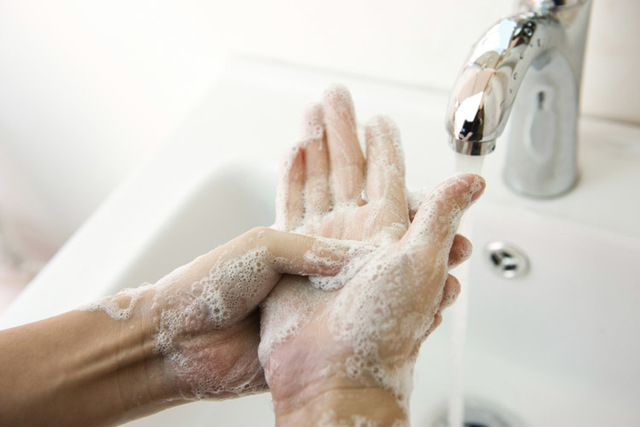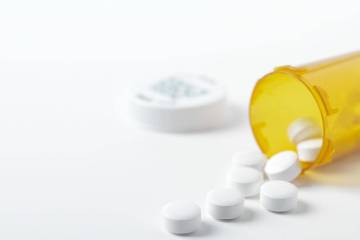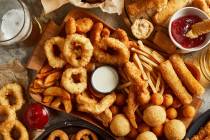Cleanliness is next to godliness and better health
Our ten fingers and two palms are weapons of mass infection. They are responsible for the spread on many germs with very scary names like E. Coli, Shigella, Bacteroides, and Haemophilus. Consequently, hand washing with soap and water is one of the most important and easiest ways to avoid getting sick and spreading germs to others. Let’s take a look at how we wage germ warfare.
Dr. Nina’s What You Need To Know About Hand Washing And Stopping The Spread Of Infection:
Where are germs?
Everywhere! You name it and they lie lurking—from doorknobs to phones to computer keyboards to handrails to tabletops. Fortunately, they are too small to see and that helps us cope (it would be frightening otherwise). Unfortunately, this results in “out of sight, out of mind.” Additionally, germs find us irresistible. It is estimated that as many as 10,000 bacterial species inhabit our body! And that if you add up their weight, it is equal to about 3 pounds; similar to what our brain weighs. As Inspector Gadget would say, “Wowzers!”
How are germs spread?
Our fingers are akin to “weapons of mass contamination.” Those ten digits can transmit germs from our nose, mouth, or eyes (by sneezing, coughing, or rubbing, respectively) to others. Not to mention, our fingers can also spread germs to the food we eat.
One of the most horrific moments in my life was when I learned about “fecal oral transmission” of germs in my microbiology class. This means that germs from stool enter our mouth. In fact, a single gram of human feces (equal to the weight of a paper clip) can contain 1 trillion germs. “Wowzers!”
When is it best to wash your hands?
• Before cooking, preparing or eating food
• After using the restroom (even in your own home)
• After changing your child’s diaper
• After sneezing, blowing your nose or coughing into your hands
• After taking out the garbage
• After feeding pets or cleaning up their waste
• If you think you should! Don’t be stingy
How can washing your hands be that important?
Studies have shown that handwashing education can decrease the number of people who get sick with diarrhea by 31% and the number of respiratory illnesses in the general population by 21%. “Wowzers!” During flu season (which we are in), handwashing is critical to decrease viral spread.
What’s all the fuss about?
Although 95% of the population says that they wash their hands after using a public toilet, in reality it is closer to 67%. Furthermore that number does not necessarily mean that they are properly washing their hands. “Wowzers!”
What is the correct method to washing your hands?
A quick rinse will not clean it. And you must use soap.
• First wet your hands and apply liquid or clean bar soap.
• Next rub your hands vigorously together and scrub all surfaces. Don’t forget your fingernails! Get soap and water under your nails.
• Continue rubbing your hands for 20 seconds. To avoid shortchanging yourself, sing the entire song “Happy Birthday” twice.
• Rinse hands well under running water.
• Dry your hands using paper towel or air dryer. If possible, use your paper towel to turn off the faucet and open the door.
Can you wash your hands too much?
Although the experts say no, in reality many of us face dry and cracked hands that can make us want to avoid hand washing. This is especially true in the wintertime. To avoid this, use moisturizing soap and apply moisturizing lotion repeatedly throughout the day.
Germs find us irresistible. To that let’s say, “I’m taken.” Twenty seconds is worth the investment to decrease our risk for getting the common cold, pinkeye, diarrhea and many more infections. Let’s stop germs dead in their tracks and disarm them with hand washing.
This information is for educational purposes and should not be considered specific medical advice. Always consult with a qualified medical professional regarding your individual circumstances.
Dr. Nina Radcliff is dedicated to her profession, her patients and her community, at large. She is passionate about sharing wise preventive health measures. Contact her on Facebook or Twitter @drninaradcliff.




























